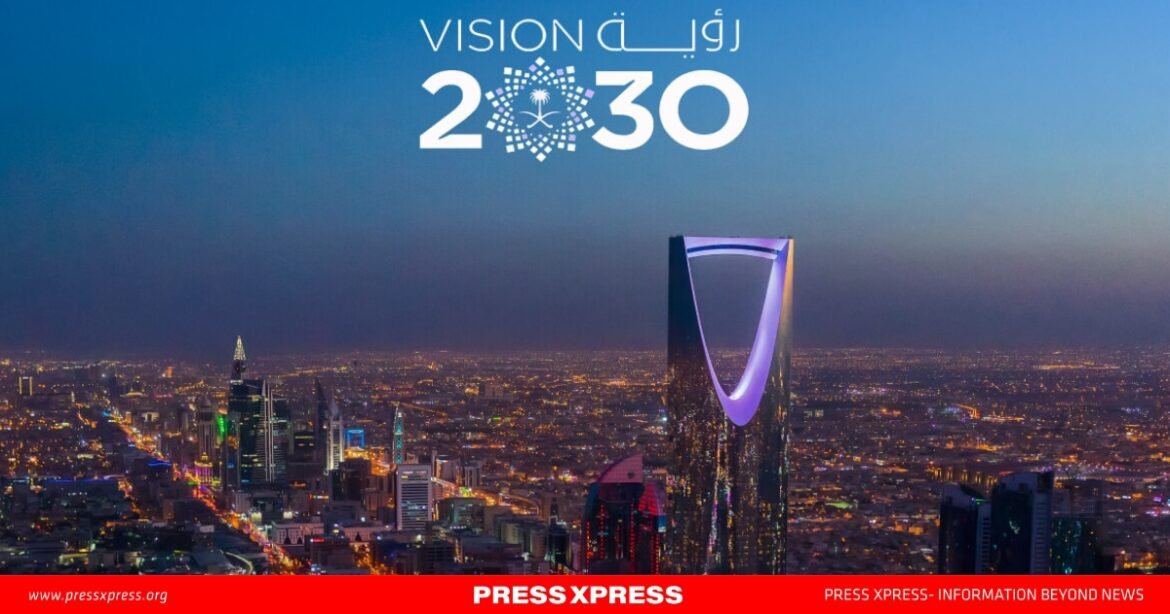Saudi Arabia has rapidly become a global investment hub under Vision 2030, aiming to diversify its economy by attracting foreign capital. By mid-2024, 184 foreign companies had relocated their regional headquarters (RHQ) to the Kingdom. This progress is driven by a carrot-and-stick strategy, offering incentives like tax breaks, full ownership rights, and customs exemptions, while restricting government contracts for companies without a Gulf HQ in Saudi Arabia.
Saudi Arabia’s Vision 2030, unveiled by Crown Prince Mohammed bin Salman, aspires to diversify the Kingdom’s oil-dependent economy by expanding its investment landscape. The recently announced Investment Law, set to take effect in February 2025, marks a pivotal shift in regulatory frameworks, aligning closely with the ambitious goals of Vision 2030.
This article analyzes the implications of the new law, highlighting its alignment with Saudi Arabia’s broader economic transformation strategy.
Key Reforms Under the New Investment Law
The 2025 Investment Law introduces a range of regulatory relaxations aimed at attracting foreign capital and fostering a competitive business environment:
Licensing Requirements Eliminated: The removal of the Foreign Investment License (MISA/SAGIA) will streamline the investment process. Investors will only need to register with the Ministry of Investment, reducing bureaucratic hurdles.
Expanded Applicability: The law applies equally to both foreign and domestic investors, including those operating in special economic zones (SEZs), ensuring a level playing field.
Updated Investor Rights: Protections against expropriation, fair treatment, and the right to freely transfer funds have been guaranteed, enhancing investor confidence.
Broadened Investment Freedom: Foreign investors can invest in any sector not included in the ‘Excluded Activities’ list, with the possibility of seeking approvals for restricted sectors.
Transparent Investment Incentives: The law introduces a transparent framework for investment incentives, ensuring objective criteria for eligibility.
Alternative Dispute Resolution Mechanisms: New methods such as arbitration and mediation will be available, promoting efficient conflict resolution.
Clear Violation Penalties: Violations will be categorized as material or non-material, with defined penalties including fines or license revocation.
Vision 2030 and Economic Diversification
Vision 2030 underscores Saudi Arabia’s strategic commitment to economic diversification, reducing oil dependence, and fostering a knowledge-based economy. The new Investment Law is a direct response to these goals, as it aims to:
Attract Foreign Direct Investment (FDI): By simplifying investment regulations and expanding sector access, Saudi Arabia aims to become a prime destination for international capital.
Enhance Private Sector Contribution: The law encourages a broader private sector role in economic development, in line with Vision 2030’s goal of increasing private sector contribution to 65% of GDP.
Create Employment Opportunities: By opening new sectors and incentivizing local presence, the law is expected to generate job opportunities for Saudi nationals.
Incentives and Regional Headquarters (RHQ) Strategy
A cornerstone of Saudi Arabia’s investment strategy is the RHQ scheme, which complements the new law. Foreign businesses establishing RHQs in Saudi Arabia can benefit from:
- 30-year tax exemptions, including zero corporate income tax
- Exemption from Saudization quotas
- Unlimited work visas
- Exclusive access to government contracts and the Public Investment Fund (PIF)
These incentives align with Vision 2030’s goal of positioning Saudi Arabia as a regional business hub, encouraging long-term corporate commitments.
Remaining Limitations and Sectoral Restrictions
Despite its progressive outlook, the new Investment Law retains certain restrictions. A revised ‘Negative List’ continues to exclude specific sectors, including petroleum exploration, military manufacturing, and real estate investment in Mecca and Madina. However, provisions exist for foreign investors to seek exemptions based on strategic importance.
Strategic Implications for Foreign Investors
The 2025 Investment Law transforms Saudi Arabia’s investment climate, reflecting a clear commitment to economic reform under Vision 2030. Key implications include:
Improved Market Access: Greater freedom for foreign investors to enter previously restricted sectors.
Enhanced Legal Protections: Stronger safeguards against expropriation and improved remittance rights.
Competitive Incentives: RHQ benefits and transparent incentives create a favorable business environment.
Conclusion
The 2025 Investment Law is a cornerstone of Saudi Arabia’s Vision 2030 strategy, designed to propel economic diversification by attracting foreign investment and expanding private sector involvement. By balancing regulatory relaxation with strategic sector protection, the Kingdom signals its readiness to become a global investment hub. Foreign investors looking to capitalize on this transformative phase will find a more transparent, secure, and opportunity-rich landscape in Saudi Arabia.


